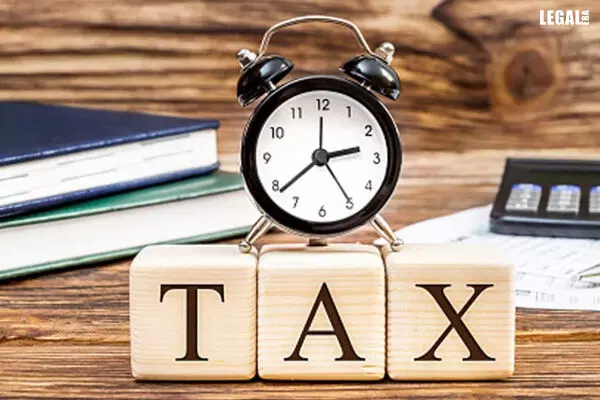- Home
- News
- Articles+
- Aerospace
- Artificial Intelligence
- Agriculture
- Alternate Dispute Resolution
- Arbitration & Mediation
- Banking and Finance
- Bankruptcy
- Book Review
- Bribery & Corruption
- Commercial Litigation
- Competition Law
- Conference Reports
- Consumer Products
- Contract
- Corporate Governance
- Corporate Law
- Covid-19
- Cryptocurrency
- Cybersecurity
- Data Protection
- Defence
- Digital Economy
- E-commerce
- Employment Law
- Energy and Natural Resources
- Entertainment and Sports Law
- Environmental Law
- Environmental, Social, and Governance
- Foreign Direct Investment
- Food and Beverage
- Gaming
- Health Care
- IBC Diaries
- In Focus
- Inclusion & Diversity
- Insurance Law
- Intellectual Property
- International Law
- IP & Tech Era
- Know the Law
- Labour Laws
- Law & Policy and Regulation
- Litigation
- Litigation Funding
- Manufacturing
- Mergers & Acquisitions
- NFTs
- Privacy
- Private Equity
- Project Finance
- Real Estate
- Risk and Compliance
- Student Corner
- Take On Board
- Tax
- Technology Media and Telecom
- Tributes
- Viewpoint
- Zoom In
- Law Firms
- In-House
- Rankings
- E-Magazine
- Legal Era TV
- Events
- Middle East
- Africa
- News
- Articles
- Aerospace
- Artificial Intelligence
- Agriculture
- Alternate Dispute Resolution
- Arbitration & Mediation
- Banking and Finance
- Bankruptcy
- Book Review
- Bribery & Corruption
- Commercial Litigation
- Competition Law
- Conference Reports
- Consumer Products
- Contract
- Corporate Governance
- Corporate Law
- Covid-19
- Cryptocurrency
- Cybersecurity
- Data Protection
- Defence
- Digital Economy
- E-commerce
- Employment Law
- Energy and Natural Resources
- Entertainment and Sports Law
- Environmental Law
- Environmental, Social, and Governance
- Foreign Direct Investment
- Food and Beverage
- Gaming
- Health Care
- IBC Diaries
- In Focus
- Inclusion & Diversity
- Insurance Law
- Intellectual Property
- International Law
- IP & Tech Era
- Know the Law
- Labour Laws
- Law & Policy and Regulation
- Litigation
- Litigation Funding
- Manufacturing
- Mergers & Acquisitions
- NFTs
- Privacy
- Private Equity
- Project Finance
- Real Estate
- Risk and Compliance
- Student Corner
- Take On Board
- Tax
- Technology Media and Telecom
- Tributes
- Viewpoint
- Zoom In
- Law Firms
- In-House
- Rankings
- E-Magazine
- Legal Era TV
- Events
- Middle East
- Africa
NCLAT Delhi: Excess Input Tax Issue Cannot Be Dealt In Section 9 IBC Proceedings

NCLAT Delhi: Excess Input Tax Issue Cannot Be Dealt In Section 9 IBC Proceedings
The National Company Law Appellate Tribunal ("NCLAT"), Principal Bench, chaired by Justice Ashok Bhushan (Chairperson), Shri Barun Mitra (Technical Member), and Shri Arun Baroka (Technical Member), has ruled that determining whether the corporate debtor has claimed input tax excessively on a GST invoice raised by the operational creditor cannot be resolved in proceedings under Section 9 of the Insolvency and Bankruptcy Code, 2016 (IBC).
The respondent/corporate debtor, Dhanraaj Agencies Pvt. Ltd., contracted the appellant, Zaara Enterprises Venture Pvt. Ltd., for interior work at the Maruti showroom owned by the corporate debtor. Advance payments were made by the corporate debtor to the appellant for the said work.
On July 11, 2022, the corporate debtor sent an email to the appellant, expressing dissatisfaction with the quality of the work performed and stating that several tasks had been completed by the corporate debtor at its own expense. Additionally, the corporate debtor sought refund of the advance payment made to the appellant.
Subsequently, the appellant issued a demand notice to the corporate debtor, requesting payment of purported outstanding dues. Upon receiving no payment, the appellant proceeded to file a petition under Section 9 of the IBC, seeking the initiation of the Corporate Insolvency Resolution Process (CIRP) against the corporate debtor.
On January 1, 2024, the National Company Law Tribunal (NCLT), relying on the email dated July 11, 2022, determined that a pre-existing dispute existed between the parties. Consequently, the NCLT rejected the Section 9 petition.
The appellant filed an appeal before the NCLAT challenging the decision dated January 1, 2024, arguing that the corporate debtor's dispute was unfounded. According to the appellant, the entirety of the work had been finished in 2021, and the email dated July 11, 2022, merely highlighted some deficiencies in the work without indicating any deeper issues. Additionally, the corporate debtor had also asserted its entitlement to input tax credit on the goods and services tax (GST) invoice issued by the appellant.
Upon reviewing the email dated July 11, 2022, the bench noted that it was sent to the appellant well before the issuance of the demand notice. The email indicated that the corporate debtor had raised concerns about the completion of work by the appellant and had also requested a refund of any excess amounts paid. Therefore, the dispute raised by the corporate debtor was not considered a frivolous defense.
Further, it was noted that the corporate debtor had indeed claimed input tax credit based on the tax invoice provided by the appellant. However, the issue of whether the input tax claimed was in excess could not be adjudicated upon in proceedings under Section 9 of the Code.
The Bench took note of the appellant's argument that the corporate debtor had claimed an excessive amount of input tax credit based on the GST tax invoice issued by the appellant. However, it was clarified that determining whether the corporate debtor had indeed claimed an excess amount of input tax credit was beyond the scope of proceedings under Section 9 of the IBC.
The bench dismissed the appeal while granting the appellant the liberty to seek recourse according to the terms of the contract if there are any outstanding dues. Additionally, the NCLT's decision to reject the petition under Section 9 of the IBC was upheld.



